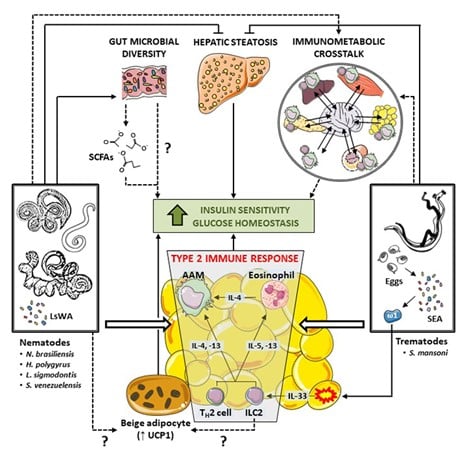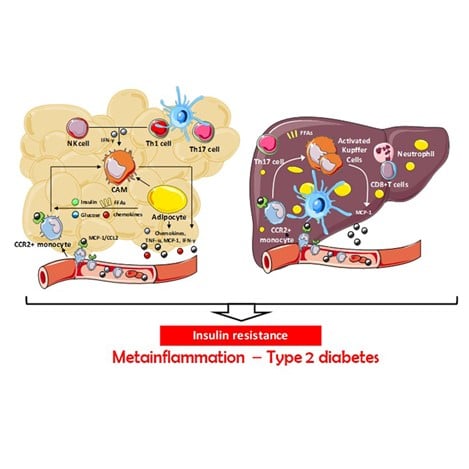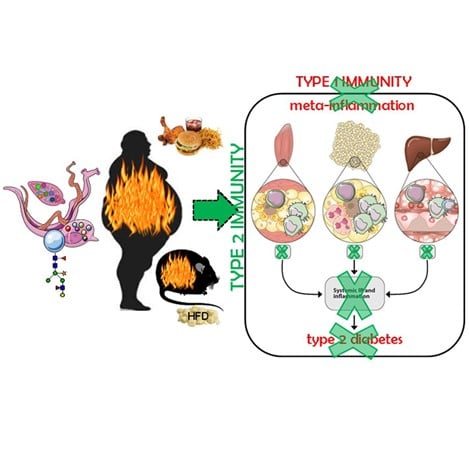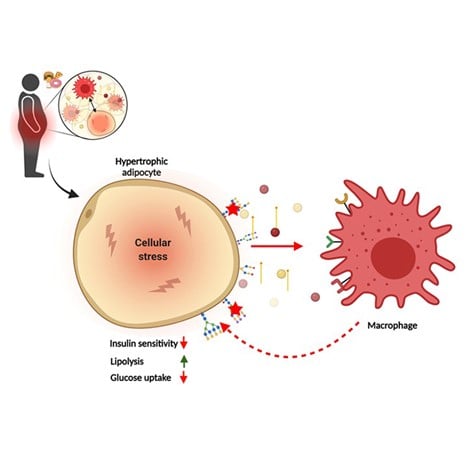Systemic immunometabolism
Parasitic helminths are masters at modulating the host immune response through a wide variety of mechanisms. Chronic infection with schistosomes is known to trigger a potent type-2 immune response together with T-cell hyporesponsiveness through induction of a regulatory network, which have been both suggested to dampen meta-inflammation and restore tissue-specific and whole-body insulin sensitivity. Interestingly, helminth infection and treatment with helminth-derived molecules have also been shown to improve insulin sensitivity and glucose homeostasis in various rodent models of T2D, at least partly through induction of a type-2 immune response in metabolic organs.
…Parasitic helminths are masters at modulating the host immune response through a wide variety of mechanisms. Chronic infection with schistosomes is known to trigger a potent type-2 immune response together with T-cell hyporesponsiveness through induction of a regulatory network, which have been both suggested to dampen meta-inflammation and restore tissue-specific and whole-body insulin sensitivity. Interestingly, helminth infection and treatment with helminth-derived molecules have also been shown to improve insulin sensitivity and glucose homeostasis in various rodent models of T2D, at least partly through induction of a type-2 immune response in metabolic organs.
A large part of our research, embedded within the LUMC research themes ‘Infection’ and ‘Immunity’, is aiming to:
- Study the molecular mechanisms underlying the immune-mediated regulation of metabolic homeostasis, notably by parasites and their molecules, using both in vitro and in vivo approaches in various rodent models or in humans.
- Identify new (parasite-derived) molecules and/or potential novel molecular targets involved in tissue-specific regulation of glucose/lipid metabolism and insulin sensitivity that can ultimately lead to future therapeutic opportunities for the treatment of metabolic disorders and type 2 diabetes.

Our group provides the following expertise:
- In depth metabolic phenotyping in in vivo models of obesity/NASH/insulin resistance using state-of-the-art approaches including extensive analysis of tissue-specific metabolic processes/pathways
- Extensive immune cell (subsets) phenotyping in metabolic tissues using both immunohistochemistry and spectral flow cytometry technology
- Investigation of the direct effects of molecules/drugs on immunometabolic and bioenergetic processes in a large portfolio of in vitro models of mouse/human metabolic and immune cells, including co-culture systems.



Key publications
Our Team members
- Dr. Bruno Guigas, PI
- Dr. Anna Zawistowska-Deniziak, guest researcher
- Joost Lambooij, PhD student
- Frank Otto, research technician